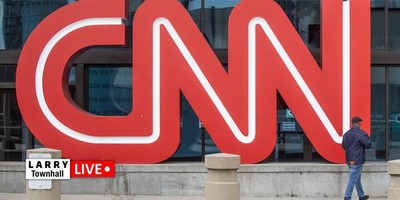"It's a recession," said former President Harry Truman, "when your neighbor loses his job; it's a depression when you lose yours."
For people facing home foreclosure, job loss or the struggle of paying high gas prices, the definition a recession seems immaterial and insignificant. True.
But during an election year, the media's constant use or expectation of "recession" does matter. Sen. Barack Obama, the Democratic Party's likely nominee, already considers the U.S. economy "in a recession."
So are we -- at least as economists commonly define the term?
No -- not even close.
But a recent typical news wire story, however, goes like this: "(George W.) Bush's news conference … appeared to be a pre-emptive measure of sorts, as it came a day before the release of statistics on the nation's gross domestic product for January through March. The common definition of a recession is two consecutive quarters of declining GDP and many expect Wednesday's report to provide the first official confirmation of a slide."
Well, case closed.
Yes, economists generally define a recession as two or more consecutive quarters of negative economic growth. The National Bureau of Economic Research (NBER), the nonpartisan organization the government uses to determine economic cycles, defines a recession as a period of sustained negative economic growth -- with GDP its most important variable.
Have we had a period of "sustained negative economic growth" since the end of the 2001 recession? No.
Last week, the government released two important figures: GDP growth (or lack thereof) for the first quarter of this year, and the number of jobs created (or lack thereof) for the month of April. Now, let's examine the reporting the day before and the day of the released figures.
Recommended
The day before the released GDP report, a headline in USA Today read, "USA TODAY survey: We're in a recession, economists say." The first two sentences read as follows: "The U.S. economy is in recession, or soon to be in one. … Two-thirds of the 52 economists polled said the U.S. economy is in recession."
This USA Today we're-in-a-recession story showed a graph with the 52 economists' predictions. They (incorrectly) predicted 0.1 percent economic growth for the first quarter, 0.5 percent negative growth for the second, with positive growth for the next four quarters at 2.3, 2.0, 2.2 and 2.6 percent respectively. But they never bothered to show the growth in the last quarter of 2007, while anemic, was still a positive 0.6 percent. In other words, assuming the traditional definition of recession -- back-to-back quarters of negative economic growth -- even USA Today's economic experts were not truly predicting a recession.
The next day, the actual number for this year's first quarter came out.
Oops. USA Today's Web site headline for an Associated Press story read: "Weak 0.6 percent economic growth in Q1 is better than forecast." In English, this means that since the recovery began in Bush's first year in office, we have had zero quarters of negative economic growth, let alone consecutive ones.
Now, on to last week's jobs numbers.
The day before the Labor Department released the numbers, The Associated Press warily wrote: "Investors are predicting another gloomy reading on U.S. employment on Friday. The Labor Department's report is expected to show a 75,000 net loss in jobs for April … and a rise in unemployment to 5.2 percent from 5.1 percent in March." So, what happened?
Oops. In April, the economy lost 20,000 jobs. Nothing to throw a parade about, but far fewer than the economic "experts" predicted. And of unemployment? Well, the rate fell from 5.1 percent to 5.0 percent. This forced The Associated Press to grudgingly concede that, well, maybe things aren't quite as bad as we thought: "The latest snapshot of the nationwide employment conditions -- while clearly still weak -- was better than many economists were anticipating. They were bracing for job cuts of 75,000 and for the unemployment rate to climb to 5.2 percent. The unemployment rate … fell to 5 percent from 5.1 percent in March. That survey showed more people finding employment than those who didn't."
But now, here comes a knuckleball. Since the economic news failed to match the predicted gloominess, The Associated Press moved the goal post. "Under one rough rule," the AP wrote, "if the economy contracts for six straight months it is considered to be in a recession. That didn't happen in the last recession -- in 2001 -- though."
It didn't?
No, the 2001 recession, according to the NBER, did not show two consecutive quarters of negative economic growth -- it had three.
By October of 1992, when President George Herbert Walker Bush ran for re-election against Bill Clinton, the economy was 18 months into a recovery. But as Investor's Business Daily noted, 90 percent of the newspaper stories on the economy were negative. Yet the following month, when Clinton defeated Bush-41, suddenly only 14 percent of economic news stories were negative!
But only a cynic would suggest a liberal media bias. And you know me better than that.

























Join the conversation as a VIP Member